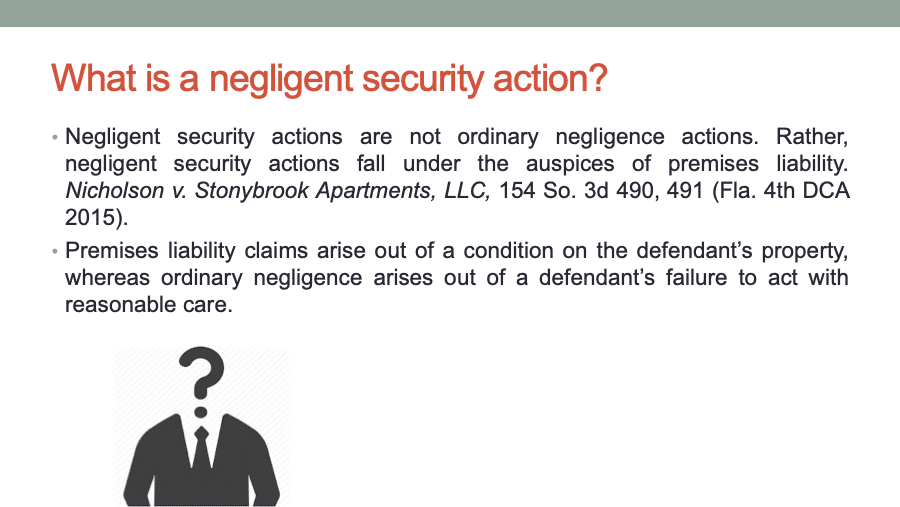Tort Reforms
Reshaping Premises Liability — But “Not A Silver Bullet”

By Lyla Maisto
7 min read
In April, Georgia became the latest state to pass tort reform laws that, in part, aim to address premises liability and negligent security actions. In a state long regarded as disadvantageous to defendants in civil litigation, the reforms could have significant implications for parties involved in building and managing affordable housing. However, for housing providers and their counsel, the impact of tort reform initiatives can feel like an insufficient lifeline in an increasingly tumultuous environment.
Premises liability lawsuits are a leading driver of rising insurance costs for affordable housing providers; besides climate change, these litigations present one of the largest cost centers for insurers. Georgia’s policy change comes weeks after Freddie Mac released new insurance requirements for coverage on assault, battery, and other third-party premises liability claims – actions that often arise from circumstances beyond the control of managers, such as personal disputes between residents or guests.
The trifecta of rising insurance costs, new insurance requirements, and increasingly aggressive litigation can spell trouble for stakeholders, causing project delays and disincentivizing deals. The pressure is on, and tort reforms, such as those passed in Georgia, can seem promising after years of advocacy by developers and policy think-tanks in the Peach State.
In neighboring Florida, where sweeping tort reforms were passed in 2023, some attorneys argue that tort reform legislation may not be the silver bullet it appears to be.

Shahrzad Emami Shaw is a partner at Nelson Mullins in Boca Raton, FL. In her practice, representing affordable housing developers, she says that even with the new tort reforms, obstacles remain for parties seeking to get affordable housing in the ground. “It’s a burden-shifting framework,” Emami Shaw says of the reforms. “You comply with all of these security requirements, and if you do that, then there’s a rebuttable presumption – but that doesn’t mean you won’t have any liability.”
“There really should be a cap on damages,” she says. “Then it would be truly helping our affordable housing developers.”
At the National Housing & Rehabilitation Association’s Annual Meeting in January, Emami Shaw participated in a panel discussion on mitigating the effects of insurance increases and discussed the provisions of the new Florida reforms.
“When these actions are filed, the plaintiff has the burden of proof to show the following four things: 1) the existence of a legal duty to keep the property safe from reasonably foreseeable crimes; 2) a breach of that duty; 3) proximate cause of the resulting injury; and 4) actual damages. This is the law specific to Florida. Foreseeability in these cases is really the key,” she stressed to attendees.
“But there is a non-delegable duty to provide reasonably safe premises,” she continued, “including reasonable protection against third-party criminal attacks. With drastic geographic variation in the standards for reasonably safe premises, she said, plaintiffs can continue to use crime records as fodder for a premises liability action against affordable housing developers.”
“Not A Silver Bullet”
James Shaw is a senior partner at Victor Shaw & McCue in West Palm Beach, FL. He views the reforms as a narrow solution to a wide array of systemic issues within Florida’s legal framework for negligent security.

“Truth be told, I think that the tort reform in Florida, as it relates to negligent security cases, is mostly toothless,” Shaw says. “They [the reforms] are helpful, but they’re not a silver bullet.” He outlines a lengthy process involving compliance under a state regulatory framework known as crime prevention through environmental design, or CPTED.
“My clients are trying to meet these requirements, and it’s expensive because it requires an analysis of the current CPTED posture at each property, which has got to be done by a licensed person in the state. And then, based on what that person assesses, you’ve got to go ahead and implement these different measures, which obviously cost a lot of money.”
He continues by outlining how tort reforms, in practice, alter the legal process for housing providers, particularly concerning damages.
“Plaintiffs now are able to put the assailant on the verdict form…A lot of people thought that by putting the assailant on the verdict form, the jury would apportion a significant amount of fault to that person, and thereby reduce the exposure to the property owners. What ends up happening is, the ultimate number that the jury comes back with is higher, because there’s some sort of feeling that they’ve got to punish this wrongdoer, this assailant who is on the form.” At the end of the day, he says, “the property owner may only be hit with a small percentage of liability, but the number is higher. And so, you’re really not seeing a reduction in the settlement values.”
Shortcomings in Florida
Even when affordable housing providers have conducted the proper due diligence, Shaw says, Florida tort reforms don’t account for additional obstacles in the process. He points to issues he encounters as a defense litigator that extend beyond the scope of tort reforms – namely, delays in obtaining crime records and inefficiencies in the state’s current procedural and appellate handling of negligent security cases.
Sluggish response times in discovery pose a significant hurdle for attorneys representing affordable housing providers. Shaw says that he is often denied requests to the police for evidence in ongoing negligent security actions due to the active status of corresponding case investigations. “We’re always fighting with them about that,” he says. “My clients have a right to due process, to defend themselves. We can’t get all this information; the police have to share it with us. And it’s very important because it’s the evidence.”
Quarrels over discovery often slow the legal process, dragging on for months or years after the incident. Shaw mentioned that other states have statutory or procedural frameworks that provide additional defenses in certain instances.
In premises liability, a “targeted” crime is a crime arising from an interpersonal dispute. Shaw says that Florida currently lacks strong statutory or appellate avenues to defend housing providers involved in targeted crimes, particularly in comparison to other states.
“Often, we are citing cases from Texas, California, and New Mexico,” Shaw says. “Those are the three with appellate decisions that stand for the position that a targeted crime is neither foreseeable nor preventable. For whatever reason, we don’t have case law in Florida that’s crystal-clear on the issue.”
Shaw says tort reforms alone do not address the issue in Florida. “There’s no statute and no strong case law saying that, if the defense can prove this is a targeted crime, they’re entitled to summary judgment because those [crimes] are not reasonably preventable.” The issue may continue to languish in obscurity without clarity or proactivity from the state’s legislature or courts.
Advertisement
The Next Chapter: Georgia
Where Florida’s reforms fall short, some are hopeful that Georgia’s brand-new law could reduce the burden of premises liability suits for affordable housing providers.
The law relies on the same five-pronged foreseeability standard as Florida’s. However, unlike Florida’s law, Georgia’s legislation contains an “apportionment of fault” clause that could help providers defend against claims arising from third-party targeted crimes.
In a press release, the office of Gov. Brian Kemp ( R ) stated that, “[T]he legislation holds property owners accountable when they fail to keep their property safe for their customers and the public, but protects establishments for simply opening their doors and employing hardworking Georgians.” It remains to be seen if Georgia’s affordable housing providers will be among those who benefit.
Over the state line from Georgia, portions of Florida’s reforms have already been repealed during the current legislative session; for now, the language impacting property liability remains intact. And as to difficulties obtaining police records in negligent security litigations, Shaw cannot help but lament the irony of the situation he faces time and again.
“In Miami, in every courtroom, there is a sign posted that says, ‘We who labor here seek only the truth,’” he says, “and that’s what we’re trying to do when we request the evidence.”

